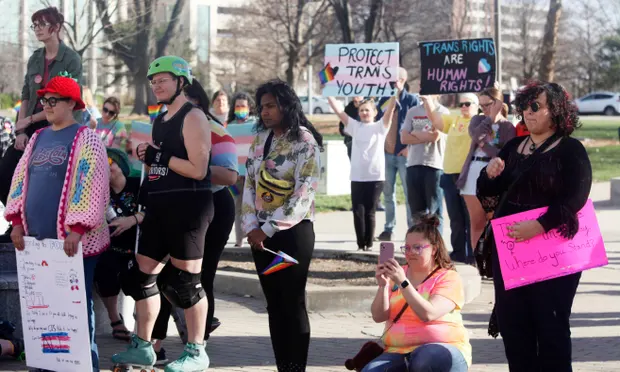Kansas has become the latest US state to enact a law restricting transgender rights, specifically regarding bathroom access. The law legally defines male and female based on the sex assigned at birth and declares that “distinctions between the sexes” in bathrooms and other spaces serves “the important governmental objectives” of protecting “health, safety and privacy”. Governor Laura Kelly, a Democrat, vetoed the bill, calling it discriminatory, but Republican lawmakers managed to secure the two-thirds majority required to override the veto.
The Kansas law is different from most other state laws in that it covers locker rooms, prisons, domestic violence shelters and rape crisis centers, as well as schools. Supporters argue that the law will prevent trans women sharing spaces with cisgender women and girls. However, critics fear that it will lead to harassment and discrimination of trans people, as well as gender-fluid and gender-nonconforming people.
Trans University of Kansas student Jenna Bellemere said the law would make things “much more complicated and risky and unnecessarily difficult”. She added that she would feel anxious about using public bathrooms, wondering if she would be harassed. The law also prevents trans people from changing the gender markers on their driver’s licenses, though it remains unclear whether this would occur without a lawsuit.
Kansas’ law is part of a larger push by Republicans across the US to roll back LGBTQ+ rights, particularly trans rights. At least 21 states, including Kansas, restrict or ban female transgender athletes’ participation in female sports. At least 14 states, but not Kansas, have restricted or banned gender-affirming care for minors.
Despite legal challenges, conservative states continue to introduce laws that restrict the rights of the LGBTQ+ community. While Republicans argue that they are protecting women’s safety and privacy, critics view these laws as an attempt to legally erase trans people. With the legal chaos that has ensued, it remains to be seen how these laws will be enforced and how the trans community will be affected in the long term.

